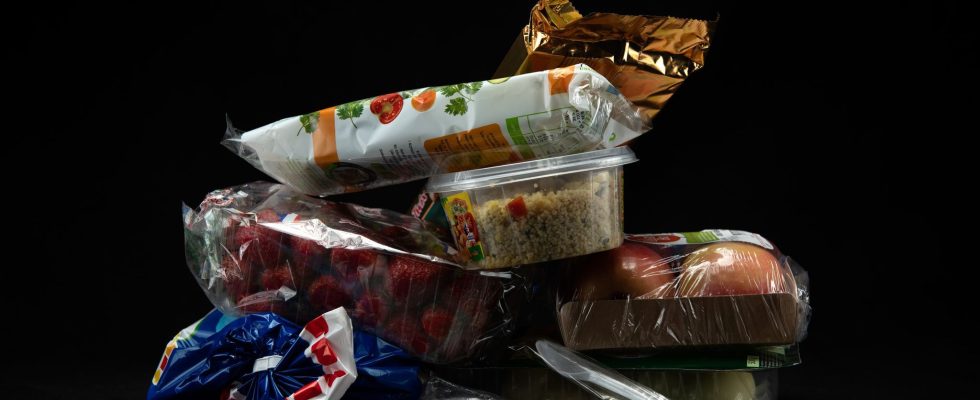Associations are stepping up against packaging filled with voids. It is in a common approach that the organizations for the fight against waste Zero Waste France and for the defense of consumers Foodwatch announced on Tuesday June 27 formal notice to five major agri-food brands : Carambar, Côte d’Or, Daco Bello, Herta, Rana.
Alerted by consumers to significant differences in volume and quantity, the associations castigate the “full of empty” packaging sold by these brands. Whether it’s half-filled Herta bacon trays or Daco Bello shelled hazelnuts containing “68% vacuum”, according to calculations by Zero Waste France and Foodwatch.
Relying on their lawyers, the organizations give 30 days to the companies concerned to withdraw said products and commit to reducing this over-packaging, otherwise they will “turn to justice”… even if no law exists against this practice.
An interpretation of the Environmental Code
More specifically, these threats of legal action are based on texts that are not specific to the issue of over-packaging or products that are too empty. In their communication, Zero Waste France and Foodwatch specify the legislation on which their threats of legal complaint are based: the Environmental and Consumer Codes.
Regarding environmental law, the two organizations rely on the section dedicated to the prevention of pollution, risks and nuisances. In a chapter dedicated to packaging waste, a paragraph of article R543-44 specifies that it “must be designed and manufactured in such a way as to limit its volume and mass to the minimum necessary to ensure a sufficient level of safety, hygiene and acceptability.”
An article which has “not yet had the opportunity to be interpreted by French justice concerning food over-packaging”, recognizes Zero Waste France on its site. The association nevertheless believes that it has “the vocation of prohibiting unjustified over-packaging, and the production of waste and the waste of natural resources that accompany it.” In the event of a complaint, however, a judge will have to be convinced of this interpretation.
Empty products deemed misleading for consumers
Second body of laws on which the two organizations rely: the Consumer Code. Derived from business law, it brings together the texts that govern the links between professionals and consumers. This time, Zero Waste France and Foodwatch cite French and European law, and in particular on their definition of a misleading commercial practice.
In France, article L121-2 specifies in particular that a commercial practice is misleading “when it is based on allegations, indications or presentations that are false or likely to mislead” the consumer, mentioning in particular “its quantity” as the element concerned.
Therefore, the two organizations believe that the presentation of products filled with air but filled with voids tends to mislead the public about their real quantity, “giving the impression to consumers that they are buying a significantly larger quantity” , explains the lawyers in their formal notices, quoted by AFP.
An alternative strategy in the absence of specific laws
Again, this reading of the law remains an interpretation of the lawyers of Zero Waste France and Foodwatch since these laws do not specifically mention cases of over-packaging. The association for the fight against waste also ideally calls for the creation of more precise and binding legal frameworks, citing the Climate and Resilience law of 2021 which will oblige medium and large surfaces to have a bulk sales area by 2030.
“Pending a transformation of our consumption and production methods, the association relies on existing regulations”, specifies the Zero Waste France site. A strategy already adopted by the organization: in early January, Zero Waste France and two other organizations sued Danone to denounce the French multinational’s addiction to plastic.
This action was based once again on a text which was not intended for this initially: the non-respect of the “duty of vigilance”. A law passed in 2017 to oblige companies to ensure proper respect for human rights and the environment in their factories, even relocated, following the deadly collapse of the Rana Plaza factory-building in Bangladesh in 2013.
Failing to fit into the boxes, activist organizations are therefore relying on the effect of announcement and the pressure of a legal complaint to convince manufacturers to change their practices.
